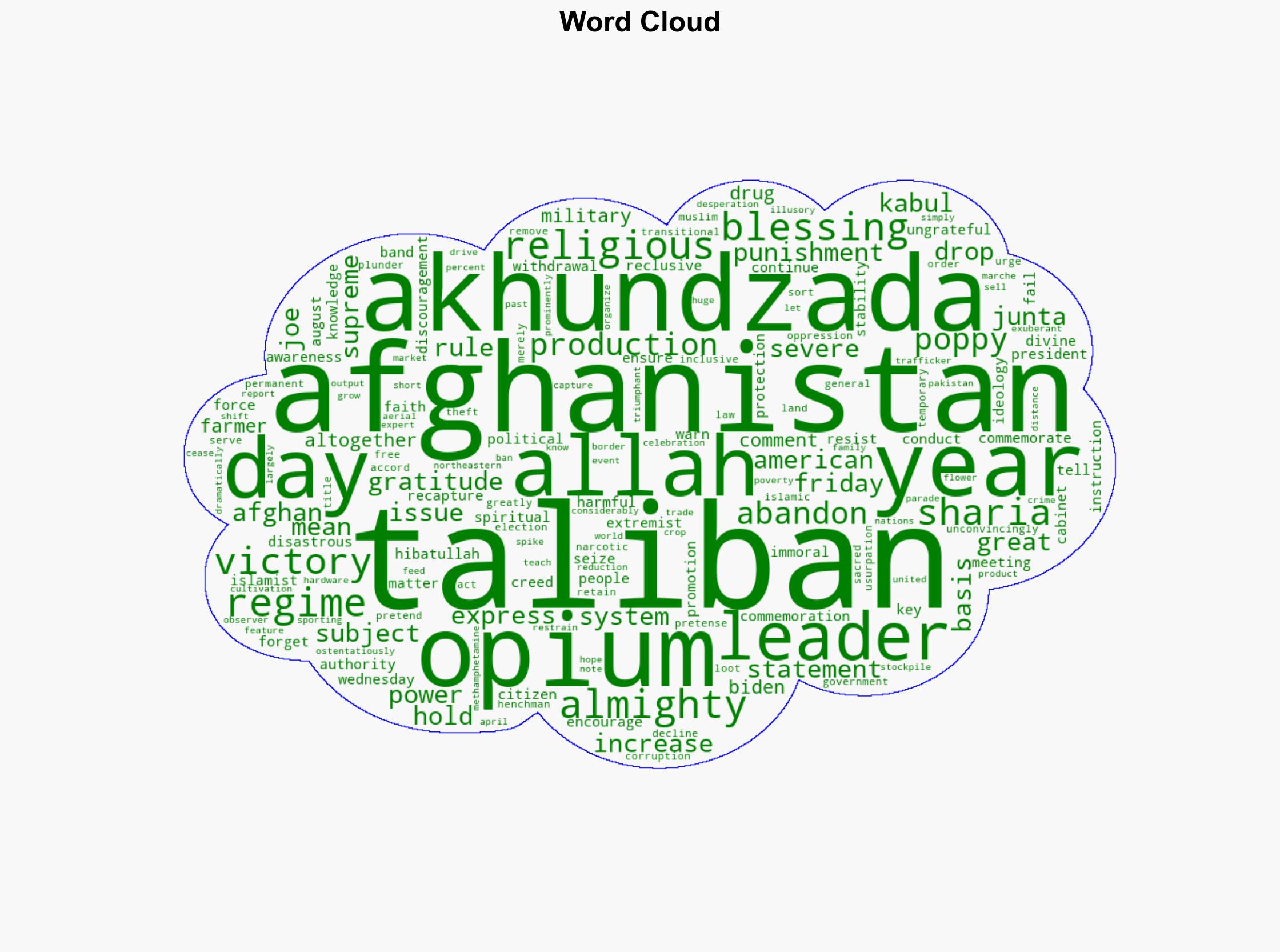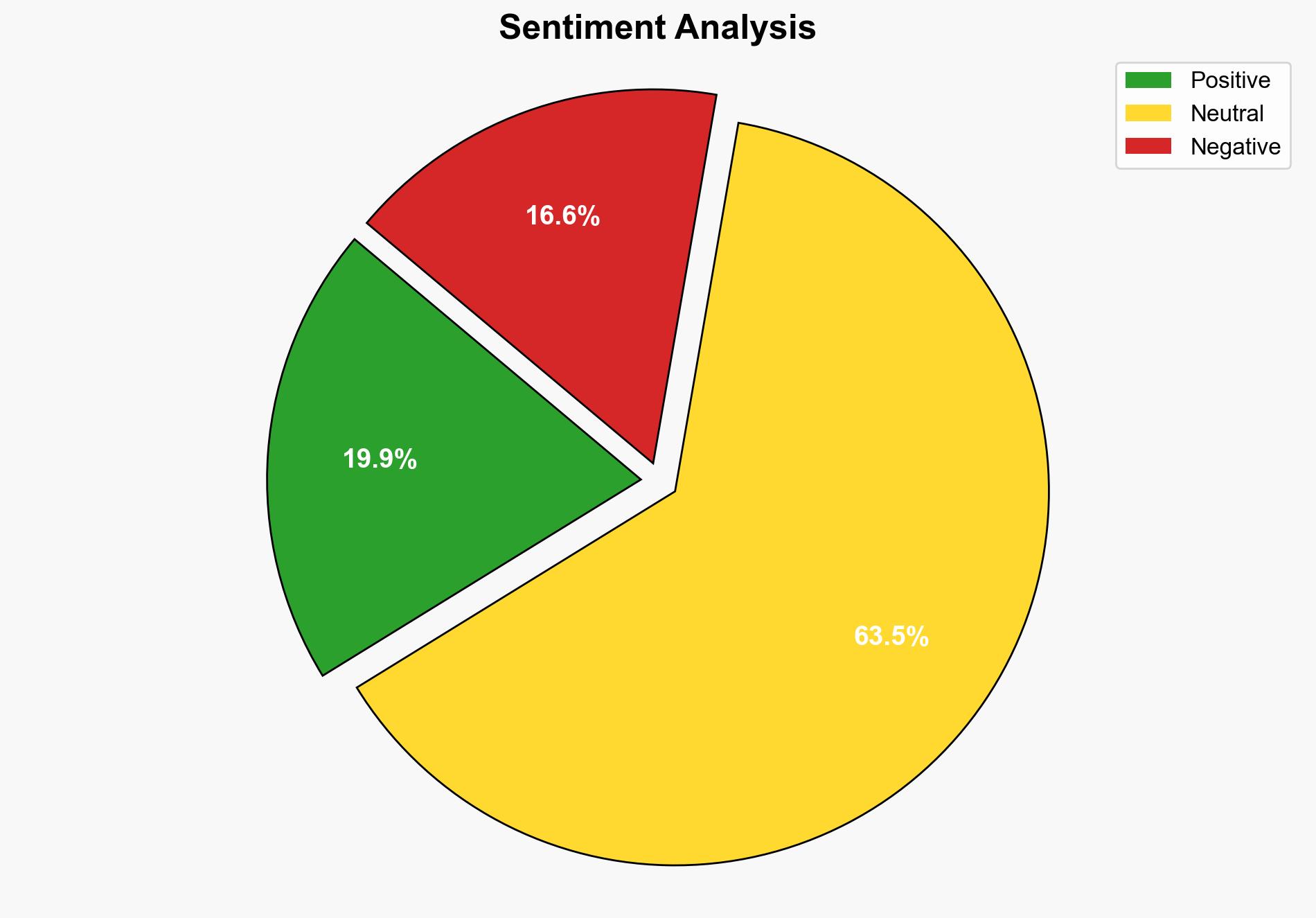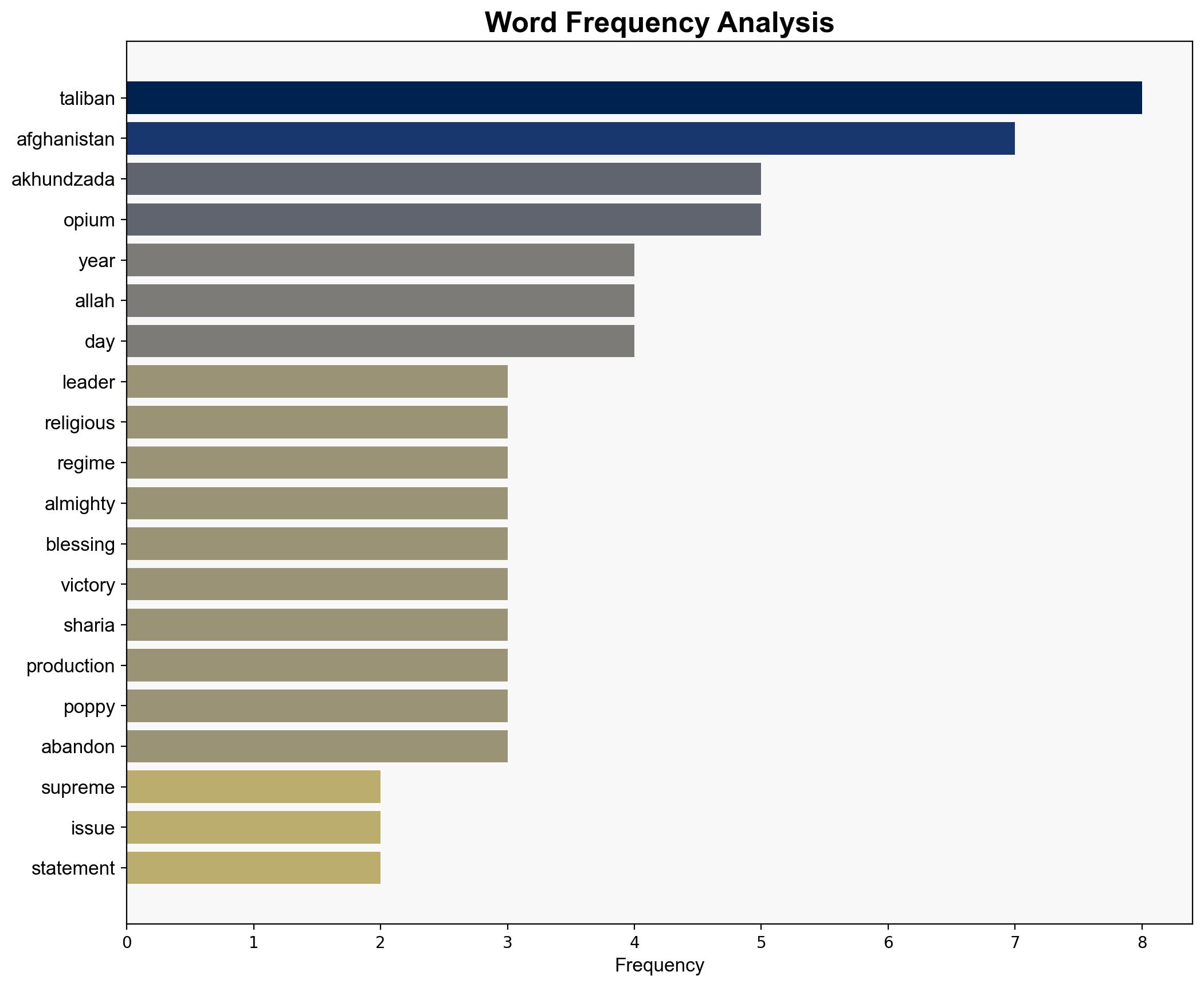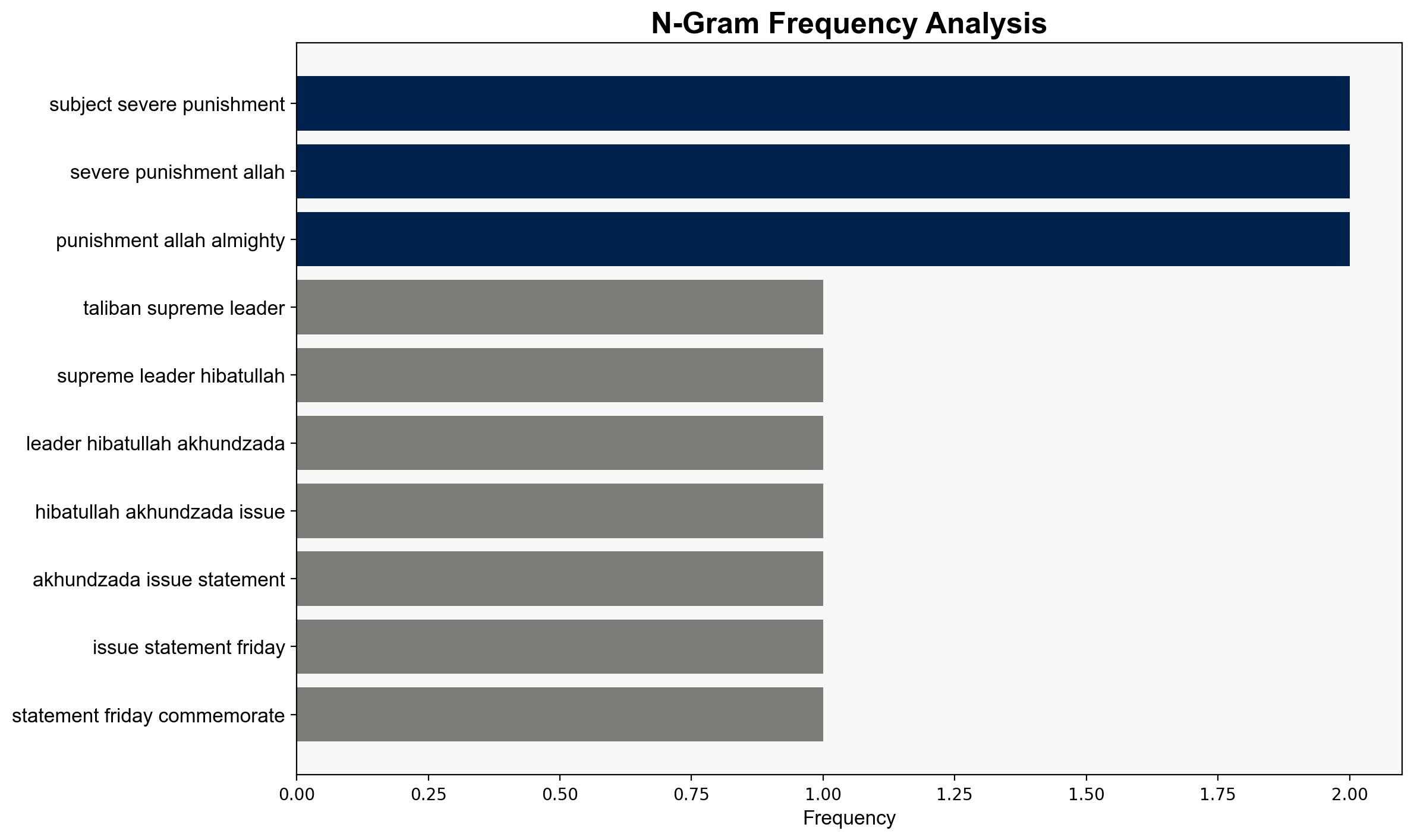Taliban Leader Says Afghans Face Severe Punishment of Allah for Resisting Jihadis – Breitbart News
Published on: 2025-08-15
Intelligence Report: Taliban Leader Says Afghans Face Severe Punishment of Allah for Resisting Jihadis – Breitbart News
1. BLUF (Bottom Line Up Front)
The most supported hypothesis is that the Taliban’s leadership is using religious rhetoric to consolidate power and suppress dissent by framing resistance as a divine transgression. Confidence in this assessment is moderate, given the reliance on religious and ideological narratives. It is recommended to monitor shifts in Taliban governance strategies and regional drug trafficking trends to anticipate potential destabilization.
2. Competing Hypotheses
1. **Hypothesis A**: The Taliban is leveraging religious rhetoric to consolidate power and suppress internal dissent by framing resistance as a religious violation.
2. **Hypothesis B**: The Taliban’s statements are primarily aimed at external audiences to deter international intervention and justify their governance model as a legitimate religious authority.
Using the Analysis of Competing Hypotheses (ACH) 2.0, Hypothesis A is better supported due to consistent messaging focused on internal control and religious justification. Hypothesis B is less supported as there is limited evidence of a strategic communication effort targeting international audiences.
3. Key Assumptions and Red Flags
– **Assumptions**: It is assumed that religious rhetoric is a primary tool for internal control. Another assumption is that the Taliban’s governance is stable enough to focus on ideological enforcement.
– **Red Flags**: The potential underestimation of external influences on Taliban strategies. The possibility of over-reliance on religious narratives without addressing socio-economic grievances.
4. Implications and Strategic Risks
– **Internal Stability**: The emphasis on religious authority may suppress dissent temporarily but could exacerbate socio-economic grievances, leading to unrest.
– **Drug Trafficking**: The reported decline in opium production may shift drug trafficking patterns, potentially increasing methamphetamine production and cross-border smuggling.
– **Geopolitical Dynamics**: The Taliban’s governance model could influence regional Islamist movements, impacting neighboring countries’ security.
5. Recommendations and Outlook
- Enhance intelligence monitoring on Taliban governance strategies and regional drug trafficking trends.
- Engage with regional partners to address potential cross-border security threats.
- Scenario Projections:
- **Best Case**: The Taliban moderates its approach, leading to improved socio-economic conditions and reduced regional tensions.
- **Worst Case**: Escalation of internal dissent and regional instability due to increased drug trafficking and ideological exportation.
- **Most Likely**: Continued internal suppression with sporadic unrest and shifting drug trafficking patterns.
6. Key Individuals and Entities
– Hibatullah Akhundzada
– Taliban leadership
7. Thematic Tags
national security threats, counter-terrorism, regional focus




